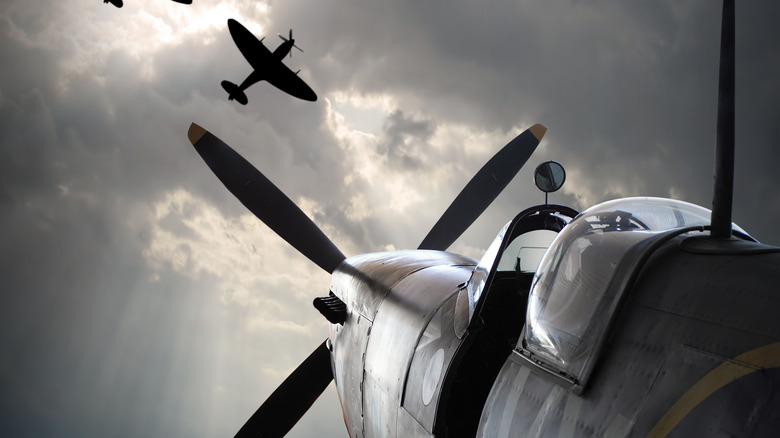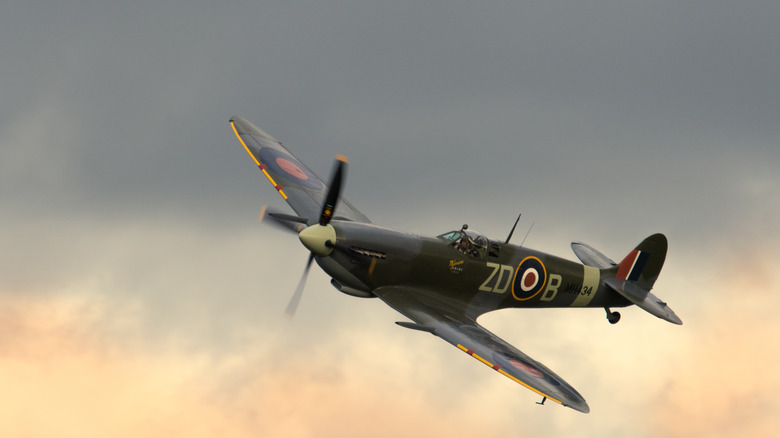The Decision That Turned The Battle Of Britain In Britain's Favor
The Battle of Britain, which took place during World War II, was a primarily air-based conflict between the United Kingdom's air force and Germany's own, the Luftwaffe. The world hung in the balance at the time of this campaign, which was fought (per Britannica) from July to September 1940. Adolf Hitler's objective had been to clear the way for a naval invasion of Great Britain (which, with much of France firmly under his control, was isolated and vulnerable at the time).
This was a tall order, as Great Britain's formidable navy would have had to be dispensed with. There was little hope of that with the Royal Air Force supporting Winston Churchill's ships, and so began weeks of dogfights in the skies around Britain. Ultimately, the Luftwaffe was repelled and Operation Sea Lion (the supposed invasion) was shelved.
However, Hitler's forces may have prevailed and opened Britain up to German occupation, had it not been for a big strategic u-turn he made that September.
The London Blitz backfires somewhat
Civilians, sadly, were a huge target in the Second World War. Frequent bombing raids became increasingly common as the war went on, with pilots from both sides seeking to cause as much damage (economic, morale, whichever) as possible. As History reports, the Luftwaffe had been primarily targeting RAF bases and other UK areas of strategic importance, but September 1940 saw a furious change of tack on Hitler's part.
After an Allied bombing of Berlin, the Fuhrer set out to devastate London and other big cities instead. September 7 marked the beginning of the infamous London Blitz, a bombing campaign that (per Historic England) didn't really end until June 1941, when Hitler withdrew his air force for use in the invasion of the Soviet Union. The scale of these attacks was truly terrible: on the deadliest night, 10-11 May 1941, more than 500 planes dropped in excess of 780 tons of high-explosive and incendiary bombs, killing around 1,300 civilians and injuring more than 1,600.
The terror this campaign inspired is difficult to conceive, but when it comes to the Battle of Britain, this switch in target from strategic to civilian may have been the key to the British victory. As History tells it, this single-minded focus on London meant that the RAF's bases around the British Isles, no longer being heavily targeted, had some crucial moments of reprieve. They spent this time rebuilding, repairing and regrouping, and were ultimately able to repel the would-be invaders as a result.

